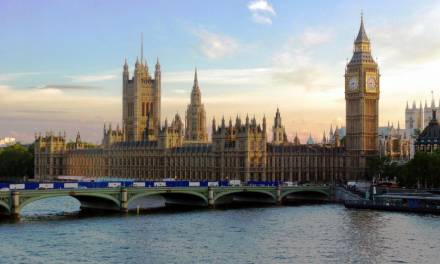The Education (School Day and School Year)(England) Regulations 1999 place a duty on schools to provide a minimum of 380 sessions (or 190 full days) ‘at a school’.
In these exceptional times, the Education Act 1996 is pertinent: local authorities have a duty to provide suitable education.
This section relates to ‘exceptional provision of education’. This usually relates to pupil illness or exclusion, but as schools close and most students work from home, it has a particular meaning in these coronavirus times.
What the law means for education providers
Bindmans states: “It is important to make clear that in these unprecedented times, it may feel like adherence to the rule of law is in danger of slipping, however until such time that new legislation is passed by the Government, the statutory duties of local authorities and schools remain unchanged in respect of education and care of all children.”
Section 42 of the Children and Families Act 2014 remains in place. Thus, local authorities would be acting unlawfully by expecting a child with a EHC Plan to attend an alternative school. It also details the provision that must put in place for a child with special educational needs: this duty does not lapse if the school is closed.
Under the Children and Families Act 2014, the school named under Section I of the EHC Plan must continue to educate children with special educational needs. A school would have to hold an emergency annual review to agree a change of placement.
What does the law mean for local authorities?
Local authority duties under the Children Act 1989 remain in place and refusing to accommodate children under the act would be unlawful. If a school closes due to coronavirus, the local authority must still accommodate the child in the most appropriate place.
Parents have a right to refuse to accept a child home and are right to be cautious when doing so.
What does the coronavirus bill change to existing regulation?
The Coronavirus Bill which was passed through parliament last month created significant changes to the Education Act 1996, the Care Act 2014 and the Children and Families Act 2014. Many of the duties required for local authorities are being suspended for the duration of the act.
However, section 42 of the Children and Families Act 2014 will remain in place. This requires local authorities to secure the specified educational provision for the child or young person, and if a plan specifies healthcare provision the responsible commissioning body must arrange the specified health care provision for the child or young person.
What duties will be removed and what does it mean?
Local authorities will no longer be required to provide education for students who have Special Educational Needs and Disabilities (SEND) at the school specified in their EHC Plan. These students may be required to attend other schools that may not be suitable to either their physical or behavioural needs, this issue will subsequently turn attention to local authorities and whether they have done enough to equate to “reasonable endeavours.”
The Coronavirus Bill gives the Secretary of State for Education the power to direct some schools to remain open. Keyworker parents and carers are still able to send their children to school as normal to enable them to go and work in their vital roles.
Vulnerable children who are supported by social care or those with safeguarding and welfare needs are also permitted to attend.
Many of the duties contained in the Care Act 2014 are to be suspended. These include the duty to meet needs and the requirement for local authorities to support carers. For SEND students, local authority duties towards children with care and support needs who are moving into adulthood will be suspended. This is likely to leave thousands of young people in an extremely vulnerable position.
Where can I find out more?
For the Education Act 1996, click here. For the Coronavirus Bill, click here.
The legislation is changing all the time, so please ensure to check the above before making any decisions on education or provisions.
The Government has produced it’s own actions for schools during the coronavirus outbreak – read it here.
For the legal consequences of closing a school, click here.
Safeguarding is of vital importance during school closures, to ensure that pupils are protected in a learning environment. For more information on this you can read our blog post here.
EDLounge Limited’s platform has safeguarding as a number one priority, with mechanisms including video/instant chat and feedback, eyes-on learning, an automatic ‘are you feeling safe?’ message and an alert function all built into the system.
EDLounge provided over 11,000 lessons in subjects up to GCSE, which matches the current UK curriculum. For more information, click here.










